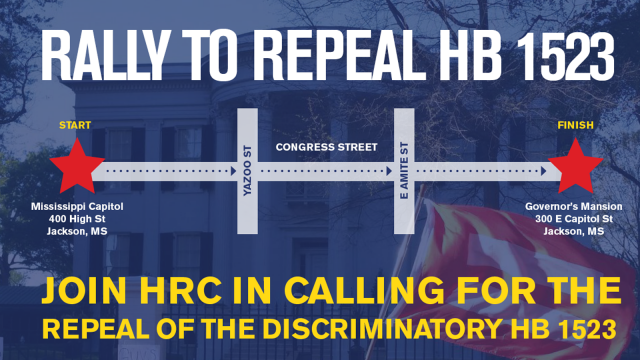Jordan Lifts Ban on Lebanese Rock Band with Openly Gay Singer

Jordan has lifted a ban on the Lebanese rock band Mashrou’ Leila, aka Leila’s Project, after the action made international headlines. The band’s lead singer Hamed Sinno, is gay and an activist for LGBT rights in the middle east.
Unfortunately, the reprieve came too late for them to play a concert in Jordan on Friday night, the Times of Israel reports:
Khalid Abu Zeid, a regional politician who initially announced the ban against Mashrou’ Leila, or Leila’s Project, said in a new statement that “we don’t mind if this concert takes place.” He didn’t elaborate.
The band said in response that the reversal was too late for the Jordan show to take place as scheduled on Friday.
The initial ban sparked criticism of Jordan, which presents itself as an island of relative tolerance in a turbulent region where religious fundamentalism is on the rise.
Mashrou’ Leila, who have been described as “the soundtrack to the Arab spring,” are known for lyrics covering such topics as homosexuality, gender equality, and political and religious freedom.
The band issued a full statement following the lifting of the ban which you can read in full below:
We, Mashrou’ Leila, would like to express our gratitude to the global media, and the band’s audience in Jordan, and around the world, for their support throughout the past two days. We take pride in playing music for an audience like ours.
We would also like to take this opportunity to thank the great number of artists, musicians, intellectuals and civil society activists from Jordan and around the world for standing with us.
We take immense pride in being part of a conversation that has played a part in harnessing popular attention to the subject of artistic and intellectual censorship, and freedom in the arts.
Since we issued our last statement, a number of individuals from governmental and religious authorities issued statements regarding their position towards the concert, which was supposed to be held on Friday April 29th at the Roman amphitheater. The real reasons for the withdrawal of the license from the Jordanian organizers of the concert were then clarified.
Besides the official (written) notification from the Ministry of Tourism that the performance would have been at odds with the “authenticity” of the site (Roman Amphitheater), various media articles stated that the primary motive to ban the band’s performance was to safeguard “values, customs and traditions.”
It is important to note here that according to article 10 of the Global Code of Ethics for Tourism, which was signed by the Jordanian government, individual, and group rights and freedoms must be respected, regardless of customs, traditions, and beliefs.
We were shocked when found out the reasons behind the cancellation, so we would like to clarify and respond to some of the allegations surrounding the band.
In statements made by official parties within the Jordanian Ministry of Interior and the clergymen, it was stated that the content of the music contradicts Islam, Christianity, and the values of the Jordanian society. It was also said that there are words in our songs that violate religions and are incompatible with the customs, traditions and values of Jordanian society. When they were asked for examples of these accusations, the charges were directed to a few words in the song “Djin.”
We had not realized that the ministry had such a penchant for cultural criticism and poetic analysis, given their more frequent artistic choices, which some would regard as populist.
What we see here is superficial cultural criticism, simple, reductive, and basing itself on the extraction of certain words from their structural context within their songs, and then from their figurative framework as metaphors. The critic then offers a simplistic analysis of the song, stripping the writer from his freedom to use metaphor within the texts, to conclude that the writer is a satanist.
At best, this is faulty art criticism, and at worst, and most realistically, it is the undemocratic slander of the band members, whereby the critic doesn’t even inquire into the band’s intentions by referring to the artist’s own statements.
It is worth mentioning here that the “simplicity” or the “accessibility” of any given text should not necessarily be a measure of it’s quality, and cannot possibly be seen as a measure for its criminality.
If the artist is stripped of their liberties to use whatever artistic tools they deem productive, and if all art is produced while adhering to a certain vision of “customs and tradition,” then doesn’t the art institution become a recycling plant?
Reducing the band to a few words taken out of their figurative framework is a distortion of the band and our beliefs.
An in-depth reading of the the band’s stances, and our songs songs reveals our interest in various social struggles, questioning the nature of freedom, and addressing various issues that we cannot ostrich ourselves from, be they oppression, censorship, gun control, sexual repression, the patriarchal oppression of both men and women, or the difficulty of just being, when being is in a society that constantly extinguishes our aspirations.
MP Bassam Battoush delivered a parliamentary memorandum demanding the government to stop the concert, stating that the band propagates “ideas which are foreign to our society and our Arab-Muslim culture” with their lyrics about sex, homosexuality, Satanism and “revolts against governments and societies”, (as reported by Ammon)
Refaat Badr added to Aram News that the liberal ideas of the band that call for breaking political, sexual, and religious constraints are dangerous and morally degenerative. Bader explained that the band’s songs are «immoral» and represent «a cultural degeneration that does not commensurate with the values of Jordanian society.»
Saying that the band must be banned from playing in Jordan because our songs address themes of sexuality, homosexuality or support righteous democratic protests against social or political problems, is essentially saying that any artist addressing basic human rights through their work should be banned.
This is a rather hostile approach towards human rights and democratic processes.
With regards to the criticisms of the band’s lyrics and the allegations surrounding their violation of the values and norms of Jordanian society, one has only to look at the reaction of the jordanian people to the suggested cancellation, to see that the notion of a singular, homogeneous society that shares unanimous evaluations of cultural production does not apply to Jordan, much as it would not apply to anywhere else in the world, and hence the respect of pluralism, and the acceptance of the other, should be factored into whatever art-filtration strategy.
According to one article Bader suggested that the band was formed in Lebanon to serve as a means for Lebanese youth to express their opinions. In Jordan however, “we have no need for such ways and already possess our own respectable and legitimate methods of expression”, he followed.
We refuse to give any validity to this line of thought, which creates rifts amongst arabs. It is unfortunate to witness a man of the cloth alluding to racist concepts of the “respectable Jordanian versus wicked Lebanese”.
We wonder if this position to ban the band is a result of a contradiction with what the band actually stands for. They mutilated our work in order to attack what we stand for, to ultimately suggest that the endorsement of gender equality and sexual freedom are at odds with the “customs and traditions” of Jordan, which is a grievous misrepresentation, as we know and firmly believe in the Jordanian people’s progressiveness, support of human rights and respect for intellectual, cultural and social pluralism.
One also necessarily wonders about the double standards at play when addressing freedom of expression in such situations. Here we see that one of the concerned parties in an debate seems to enjoy the right to defame a band, without any objection from authorities concerned, while the second party, the band, are prevented from playing, and are rendered victims of a full-fledged media war spear-headed by the first party’s slander, as a result of exercising our basic rights of free speech to address human rights.
We encourage criticism, and we strive towards cultivating a critical culture in the world around us, irrespective of the source of said criticism being an art critic, a religious figure, a political representative, or any other critics of the band and of our work. This is after all, a basic right that we would not want to deny any individual or group. On the contrary, we strongly encourage the healthy exercise of this freedom, but said health is synonymous with democracy, whereas this is a case of one party exploiting a situation to completely silence the other and cut them out of the debate altogether, rather than engaging them respectfully.
We would like to congratulate the Governor of Amman for taking a first step towards us, by sending us this letter of approval from the ministry of interior, that was signed with his extension of respect. We appreciate that he is doing this, despite having told CNN two days ago that there would be no retraction, as “policy is not a soccer game.”
However, the approval was sent too late for us to still be able to play the concert, as it was issued after the Ministry of Tourism was closed, meaning the organisers would not be able to possibly secure the venue in time, let alone reorganise the entire event in 24 hours.
The letter also does not retract, or even apologise for, the unfounded smear campaign that has been waged against the band in the media for the last few days.
We hope this letter will be the first step towards securing the possibility of us playing in Jordan again in the near future, perhaps under more just conditions, even though we have no reason to know for sure at this point that this will be possible, as the approval is for tomorrow’s impossible concert.
Past all of that, congratulations to the people of Jordan. You have taught us all a very valuable lesson.
The post Jordan Lifts Ban on Lebanese Rock Band with Openly Gay Singer appeared first on Towleroad.

feeds.towleroad.com/~r/towleroad/feed/~3/HcugjWmNefs/









